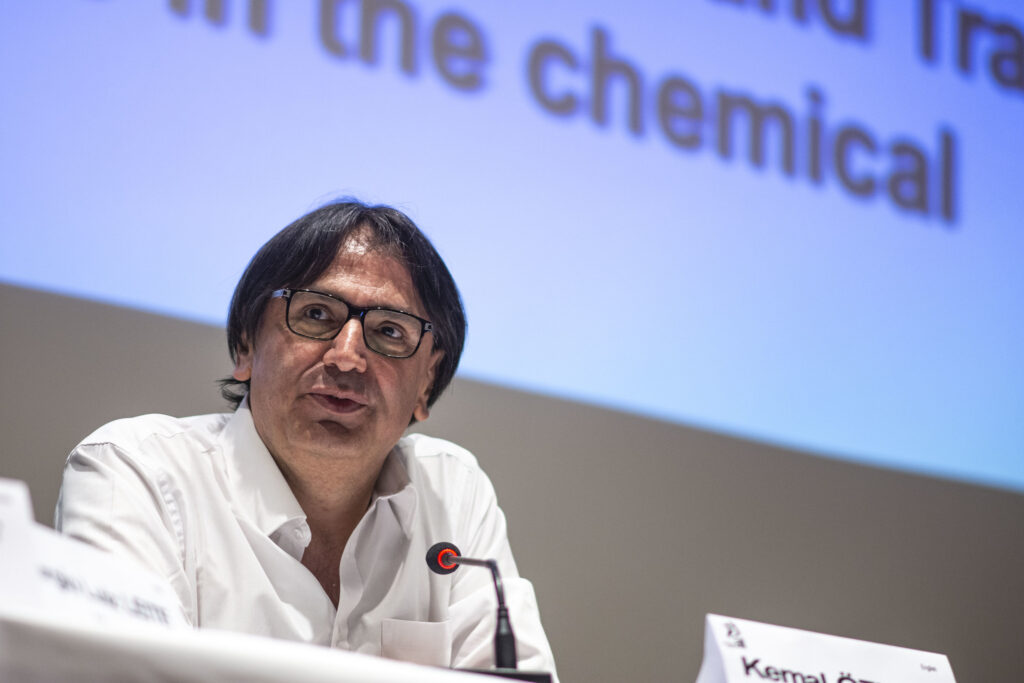22 May, 2025In today’s global economy, violations of workers’ rights have become systemic. Across extensive supply chains, from garment factories in Southeast Asia to critical minerails in Africa and automotive plants in Eastern Europe, workers face rising threats to their safety, their livelihoods, and their right to organize. These violations are not accidental. They are symptoms of a global model that has, for too long, prioritized profit over people.
By Kemal Özkan, IndustriALL Assistant general secretary
As authoritarian practices rise and democratic rights erode, Human Rights Due Diligence (HRDD) is emerging as a vital tool, perhaps the most powerful we have, to reverse that trend.
At IndustriALL, we believe HRDD along with the UN Guiding Principles on Business and Human Rights has the potential to transform corporate accountability. But for that to happen, workers and unions must be fully at the table, not watching through the window.
Why HRDD, why now?
The growing wave of national and international legislation on HRDD, from individual countries like Germany and France to the European Union (EU), reflects an important shift although there are unfortunately some indications of regression. It signals that voluntary codes of conduct have failed. They have lost credibility because they have been used as cover for business-as-usual practices that continue to exploit workers with impunity.
HRDD offers something different: a legally binding framework that holds companies accountable for the entire lifecycle of their operations, from sourcing to delivery, upstream and downstream.
But HRDD is more than a regulatory development. For us, it is a concrete opportunity to defend and advance workers’ rights where they are most under threat.
In many countries, especially in the Global South, domestic laws fall short from protecting workers from abuse. HRDD legislation gives us leverage to demand compliance with international labour standards and to push back against repression. In this way, it helps defend not just individual workers, but the very principles of democracy and social justice.
The risks we face
In Europe, the legislative momentum that gave rise to HRDD is now facing backlash. The European Commission’s Omnibus proposal is a case in point, a rollback disguised as “simplification,” prioritizing profit over human rights and environmental protection. Trade unions were excluded from the consultation process, and no impact assessment was conducted. This is unacceptable.
Companies, too, are pushing back. With the global economy facing rising costs and uncertainty—amplified by tariffs and shifting trade policies, businesses are seeking ways to reduce risk. But rather than doubling down on ethical practices, many are responding by rerouting supply chains to jurisdictions with weaker labour laws. Some are even questioning their ability to meet transparency requirements, arguing that economic pressure makes full due diligence “unrealistic.”
These are not excuses we can accept. HRDD is not a luxury for when times are good, it is a requirement precisely for when times are tough.
The tariff effect
New tariffs on goods like steel, electric vehicles, and green technology are already disrupting global trade. As companies scramble to maintain margins and adjust sourcing strategies, we fear they will cut corners on rights protections. In their rush to diversify, many may move production to locations with weaker regulatory frameworks, ignoring basic checks on labour conditions and environmental impact.
This is a direct threat to the credibility of HRDD. The more opaque the supply chain becomes, the harder it will be to monitor and enforce human rights standards. We must not allow economic or geopolitical pressures to become the loopholes that unravel HRDD commitments.
What needs to happen
For HRDD to be truly effective, one condition is non-negotiable: the full involvement of trade unions.
Workers are the ones who face rights violations. They are also the ones who know best where risks lie and how to fix them. HRDD must be grounded in social dialogue and industrial relations. Anything less is window dressing.
At IndustriALL, our HRDD strategy rests on three pillars:
- Advocacy and campaigning – for a strong legal environment that mandates due diligence and enforces consequences for non-compliance.
- Implementation tools and mechanisms – including Global Framework Agreements and innovative sectoral models like the ACT initiative and the Accord on Fire and Building Safety.
- Awareness-raising and capacity-building – to educate and empower workers and unions across all sectors and regions to engage actively in HRDD processes.
We are not starting from zero. From the International Accord’s expansion to Pakistan, to ACT’s role in improving wages in the garment industry, to the sector-wide progress made in Cambodia, our movement is already shaping what good due diligence looks like. The next step is ensuring that these successes become the norm, not the exception.
A message to our movement
No HRDD approach can be credible without unions. We must be involved in the phases of legislation, the enforcement, and the day-to-day monitoring of compliance.
We cannot let this moment pass. If done right, HRDD will not just improve conditions for workers in supply chains. It will help rebuild trust, strengthen democracy, and lay the foundation for a more just global economy.
International production through supply chains presents enormous challenges. But HRDD is the key to managing those challenges, and to ensuring that fundamental rights are respected. It is not just part of our strategy at IndustriALL. It is the future.
